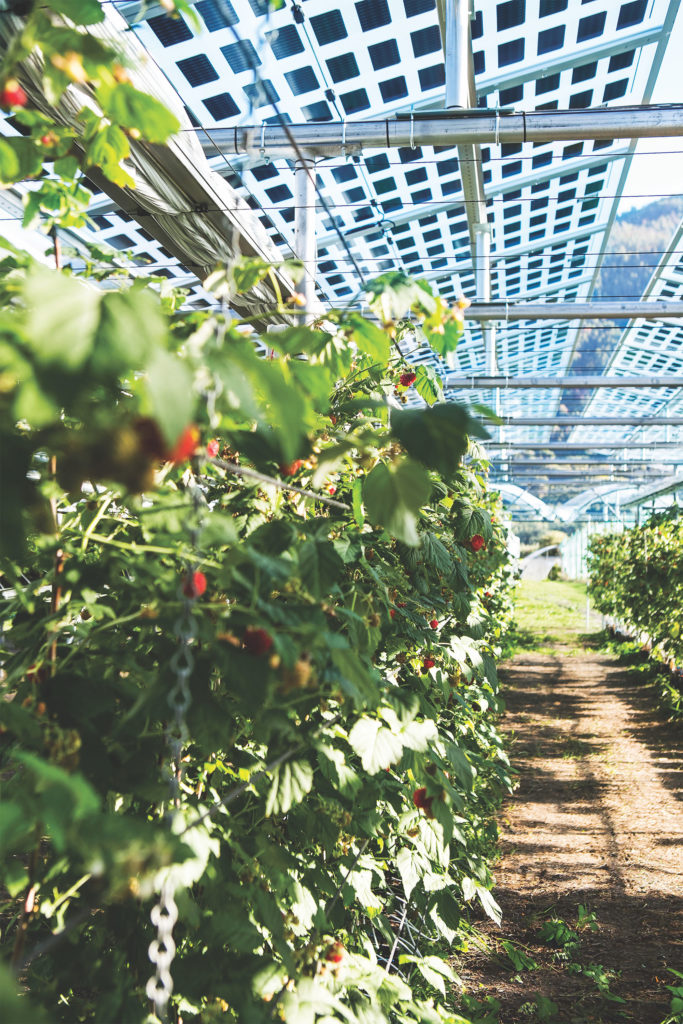Increasing the resilience of farming to climate change while accelerating the rollout of renewable energy installations without taking up additional arable land – this is what Insolight offers. The company’s agrivoltaic system, Insolagrin, is set to replace the plastic polytunnels conventionally used to protect crops from heat, heavy rain and hail with a photovoltaic structure capable of varying the light levels. The system incorporates THEIA (Translucency & High Efficiency in Agrivoltaics) solar modules installed on a raised structure over the crop. These translucent modules let through the sunlight that plants need to grow and are fitted with sensors that monitor the weather conditions. Reacting to the weather data collected, a moveable fabric screen is used to vary the light level reaching the crop. The surplus sunlight is turned into electricity by the system’s bifacial solar cells.
The pilot phase, conducted in partnership with Agroscope (the Swiss national centre of excellence for agricultural and food production research) at its Rhône Valley site, has demonstrated the value of Insolagrin in growing soft-fruit crops such as raspberries and strawberries. “This solution is above all an agricultural tool – any solar power it generates is a plus,” says Laurent Coulot, co-founder and CEO of Insolight. It’s a big plus: the potential for this technology in Switzerland is 5 GWp over approximately 5,000 hectares. Around 30 commercial projects are already under development, set to generate 20 MWp of installed power over 30 hectares. Insolight is active mainly in Switzerland and France, but the company is now targeting the Italian and German markets with increasingly large installations.
Insolight’s clients are essentially agricultural producers. The company is initially focusing on red-fruit growers, but Insolagrin could in future be used in commercial orchards too. “Where necessary, we work with energy producers who help us fund these photovoltaic installations. For example, in our pilot project we’re working with Romande Energie [Editor’s note: one of Switzerland’s carbon footprint reduction pioneers],” adds Laurent Coulot. The firm has also built up an ecosystem with partners involved in the entire value chain (fruit growing and electricity production) – like Migros, one of Switzerland’s leading food retail businesses. In 2022, Insolight raised additional capital from strategic investors Demeter and Energie 360°’s corporate venture capital fund, giving Insolight the green light to grow commercially and develop more projects.

Insolight SA